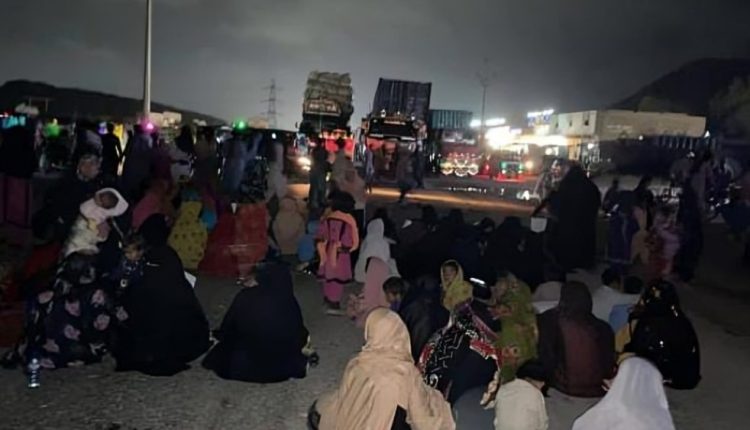A joint strategy is being developed for the security of transport and passengers – Secretary Transport; Ensuring security on national highways is the government’s responsibility – Spokesperson Shahid Rind; 27 Joint Response Centers have been established on all major highways in the province – Balochistan Home Department; The law and order situation in Balochistan has worsened since the new government took office – Transport Unions’ Spokesperson Nasir Shahwani

Abdullah, a resident of Punjab’s Multan district, has permanently moved back to his hometown, leaving behind the barber shop he had been running in Quetta for the past ten years. Abdullah stated that due to his work, he had to frequently travel between Balochistan and Punjab every few months. However, the increasing incidents of targeted killings of passengers from Punjab on Balochistan’s highways instilled fear in him. According to him, traveling on these roads now feels like putting one’s life at stake.

The rise in militancy, lawlessness, robberies, and frequent protests in Balochistan has severely impacted public mobility on highways. Passengers feel unsafe, and transporters are being forced to shut down their businesses. Government measures have proven insufficient in addressing these concerns. Under such circumstances, traveling on Balochistan’s highways has become a challenge not just for outsiders but also for locals.
Quetta resident Azhar Khan, whose son is ill, shared his ordeal. Due to the lack of quality medical facilities in Quetta, he is forced to take his son to Karachi for treatment. “I need to take him for check-ups every month, but for the past month, we haven’t been able to travel. Sometimes protests block the roads, sometimes armed groups take control, forcing the government to shut down highways and stop traffic,” he said. Even when roads are open, securing a doctor’s appointment or getting time off from work becomes another hurdle.
Azhar Khan noted that whenever someone in Balochistan plans a journey, their mind is filled with worries and uncertainties because every day, something alarming happens on the roads.
Balochistan’s highways have become increasingly dangerous, with looming threats at every turn and fears yet unfounded. Since January 2024, there have been more than half a dozen attacks on major national highways, including:
• N-65: Connecting Balochistan to Sukkur
• N-70: Connecting Balochistan to Punjab
• N-50: Connecting Balochistan to KP and Punjab via Dera Ismail Khan
• N-25: Connecting Quetta to Karachi
• N-40: Connecting Quetta to Taftan
More than 50 passengers have been killed in these incidents, and dozens of vehicles have been torched by militants. Many victims were from Punjab, who were pulled off buses and executed after their identity cards were checked.
In August 2024, militants stopped a bus on the N-70 highway near Rarah Sham, Musakhail, killing 23 passengers from Punjab. Last week, seven more passengers were shot dead in Barkhan’s Rarkan area.
This week, militants blocked the N-65 highway in Bolan’s Pir Ghaib, Ab Gum, and Bibi Nani areas for over five hours. Thousands of people returning from a religious gathering were stranded. Two bystanders from Quetta were killed, and four were injured in crossfire between militants and security forces. The attackers even intercepted the vehicle of ruling PPP MPA and Parliamentary Secretary for Transport, Liaqat Lehri, and snatched weapons from his guards. A video of the incident went viral on social media.
More Update
Shakeel Qadir Khan: Architect of a…
Najeebullah reveals, Baloch youngster…

The government is facing intense criticism over the deteriorating security situation, with opposition leader Umar Ayub and other political figures questioning its failure to maintain order.
Following these incidents, many citizens—especially at night—fear traveling on highways. All Balochistan Bus Transport Unions’ spokesperson Nasir Shahwani said that while conditions were already bad, the situation has become even more alarming under the new government.

